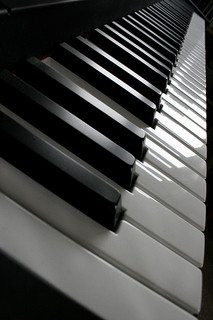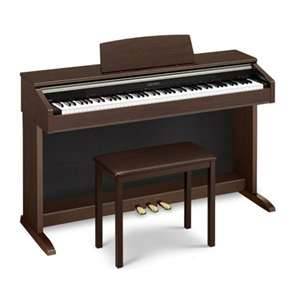
The hardest part, of course, are the first years when a student is just learning how to play. Proper technique and focus during those early years of training can truly pay off with a lifetime of great music.
So, we’ve got a few tips to make the most of your piano lessons!
Efficient Piano Practice Leads To Efficient Piano Playing
1 – Don’t practice every day.
While certainly less strenuous than most physical exercise, piano practice is still demanding on the body and on the mind. So, just as if you’re working out in the gym, it’s smart to take a day or two off on occasion to let your body rest, heal, and reflect.
Especially, if learning starts to feel like a chore, take a little time off. Piano practice is much more effective if you’re truly enjoying yourself rather than doing it out of a sense of obligation.
2 – Keep your mind focused.
Proper playing and practice requires true coordination of the body and mind. If your thoughts are distracted, you might technically be moving your fingers in all the right ways, but the lessons won’t “sink in.” Paying attention to your own body and the music you’re producing helps ensure you get the most out of each lesson as possible.
“Spacing out” during lessons robs them of their value.
3 – Play what you enjoy.
There’s a common misconception that classical piano playing is a pre-requisite for pop, gospel, jazz, or other forms of piano. This really isn’t true. While a classical grounding is certainly nice to have, if your own musical goals lie in other genres, start working on them!
Learning a rock song you love will almost always yield better results than forcing yourself to learn Chopin pieces you hate.
4 – Try training in smaller bursts.
Previously, it was considered normal for piano students to practice for hours a day, but modern research into learning shows this isn’t terribly efficient. Most people’s concentration will tend to wander after 30-60 minutes, almost unavoidably. Plus, fatigue will begin to set in and make this worse.
If you’re having trouble sticking to a practice schedule, break it up over the course of the day. You may find that four 15-minute sessions do you far more good than a single hour-long session.
Here at Cooper Piano, we think piano training should be available to everyone, young and old. Contact us today for information on lessons!







